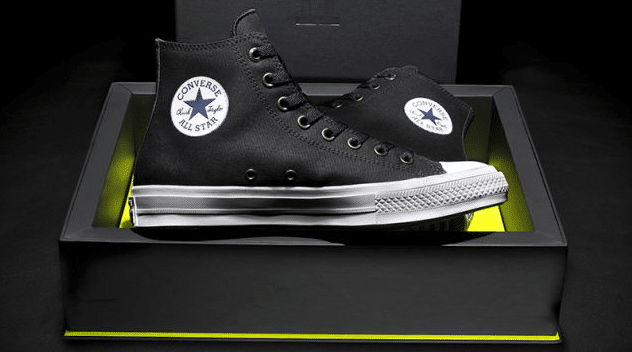
Iconic Chuck Taylor All-Stars Get a Redesign After 98 Years
The Chuck Taylor All-Stars from Converse, created by a Columbus, Indiana–born shoe salesman, are getting an update after nearly a century. So is the new Chuck II a godsend for your feet or the footwear equivalent of New Coke? After all, the original Chuck is one of the best-selling shoes of all time, with more than one billion pairs sold. It has remained unmistakably cool for nearly a century, worn by everyone from JFK to the Ramones. Why mess with success?
But even Converse fans have long complained of discomfort with the no-frills sneaker, introduced back in 1917, when Chuck Taylor started wearing them as a basketball player at Columbus High School. He was hired by Converse in 1921 and suggested changes to the design to provide more flexibility and support, and by 1932, the shoes became known as Chuck Taylor All-Stars. Last fall, the company issued a special edition of Chucks featuring a Columbus design to honor Taylor’s hometown heritage.
We think Taylor himself would approve of the Chuck II: classic Converse All-Star styling, now with advanced Nike technology. From the outside, the Chuck II looks nearly identical to the classic Chuck. It’s on the inside that you see the changes from Nike, which bought Converse in 2003 after it went bankrupt. A material called Lunarlon—a lightweight, bouncy foam that Nike uses in its running and basketball shoes—now fills out the Chuck II’s rubber soles. You probably still don’t want to run a marathon in them, but your feet should feel comfier after a day’s wear.
The only real aesthetic changes to the new Chucks—but with the fancy add-ons, should we call them Charles now?—are a non-slip tongue and a perforated suede liner so your feet won’t sweat as much.
When they hit stores on July 28, the high- and low-top versions of the Chuck II will sell for $15 more than the originals, at $75 and $70, respectively. And the company is doing what Coca-Cola failed to do when it introduced its ill-fated new recipe in 1985—it’s still selling the originals along with the new styles.








